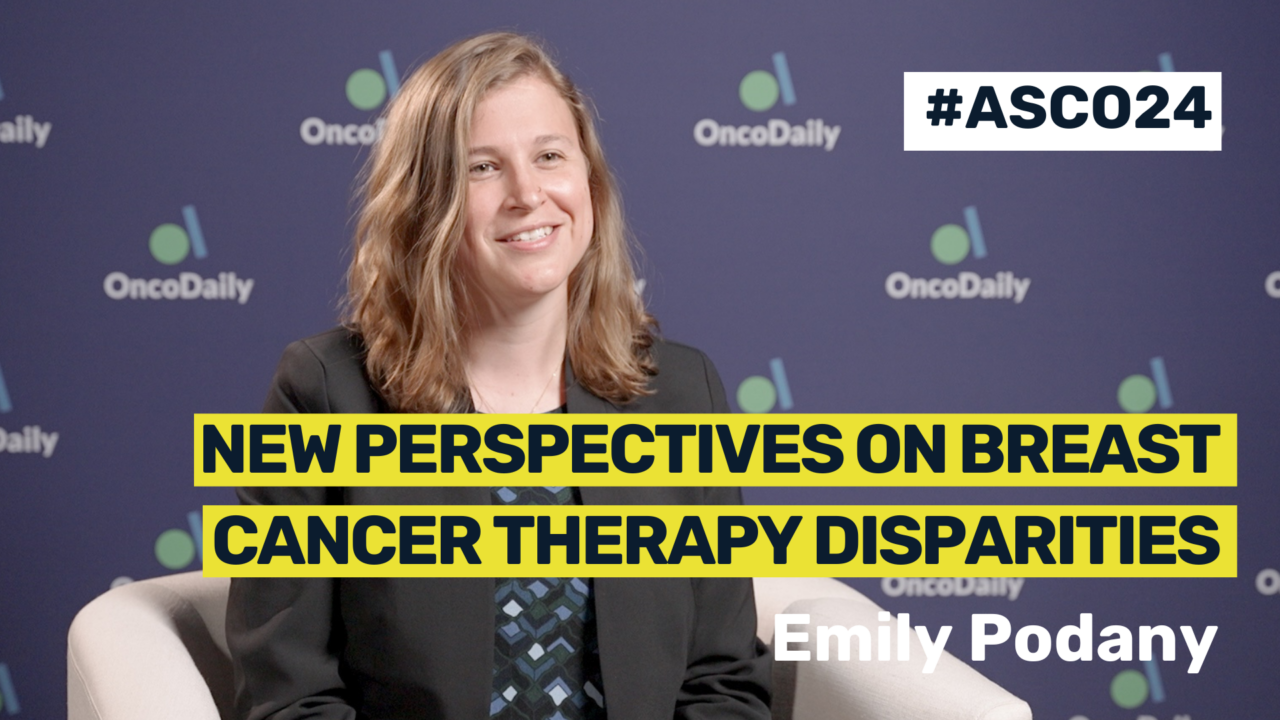The American Society of Clinical Oncology (ASCO) Annual Meeting is one of the largest and most prestigious conferences in the field of oncology. This year, the meeting took place from May 31 to June 4 in Chicago, Illinois. The event gathers oncologists, researchers, and healthcare professionals from around the world to discuss the latest advancements in cancer research, treatment, and patient care. Keynote sessions, research presentations, and panel discussions are typically part of the agenda, providing attendees with valuable insights into emerging trends and innovations in oncology.
This year, OncoDaily was at ASCO 2024 for the first time covering the meeting on-site. We had the pleasure of interviewing researchers who summarized the highlights of their work.
In this video, Emily Podany, MD Hematology/Oncology Fellow at Washington University in St. Louis, MO, shares insights from their Oral Presentation on “Racial differences in genomic profiles and targeted treatment use in ER+ HER2- metastatic breast cancer”.
I’m Emily Podany. I’m a clinical fellow in hematology and oncology at Washington University in St. Louis. The oral rapid abstract that I’m presenting on Monday at noon in the metastatic breast cancer rapid oral abstract session is focusing on targeted treatment use differences by race.
So what we found is we used a large multicenter consortium and we used clinico-genomic data from this large consortium to determine whether there were differences between black patients and white patients and their use in targeted treatments in metastatic breast cancer. Specifically, we looked at PIK3CA mutations. So patients with PIK3CA mutations are able to receive PI3 kinase inhibitors.
We wanted to see if this was equally used among black and white patients with this mutation in hormone receptor positive HER2 negative metastatic breast cancer. What we found is that black patients were significantly less likely to receive these PI3 kinase inhibitors despite having equal incidence of the PIK3CA mutations.
We also found that black patients with these mutations were significantly less likely to be enrolled in clinical trials, something that has been shown in other research areas that unfortunately we have a significant lack of black patients enrolling in clinical trials.
More videos and content from ASCO 2024 on OncoDaily.


